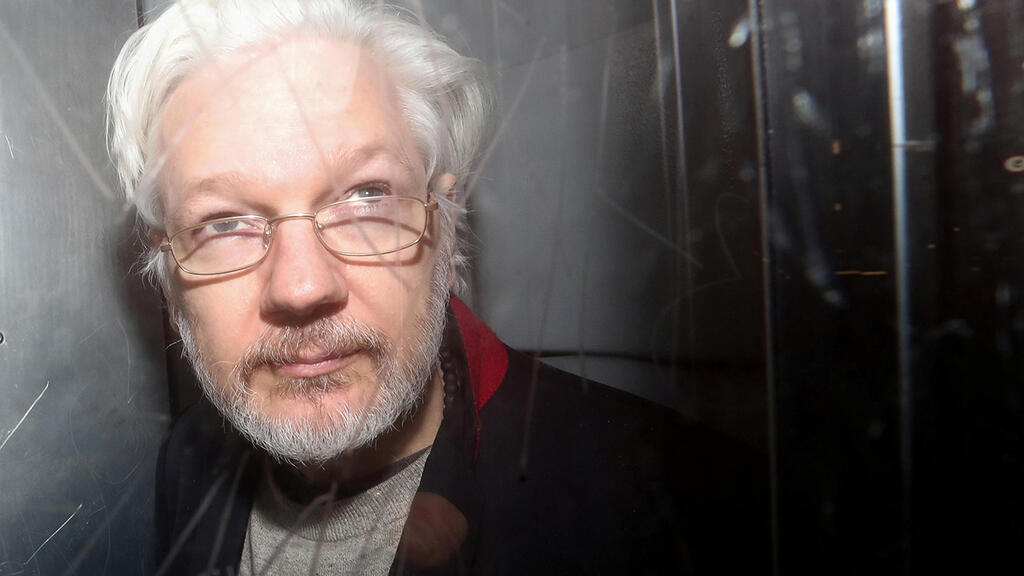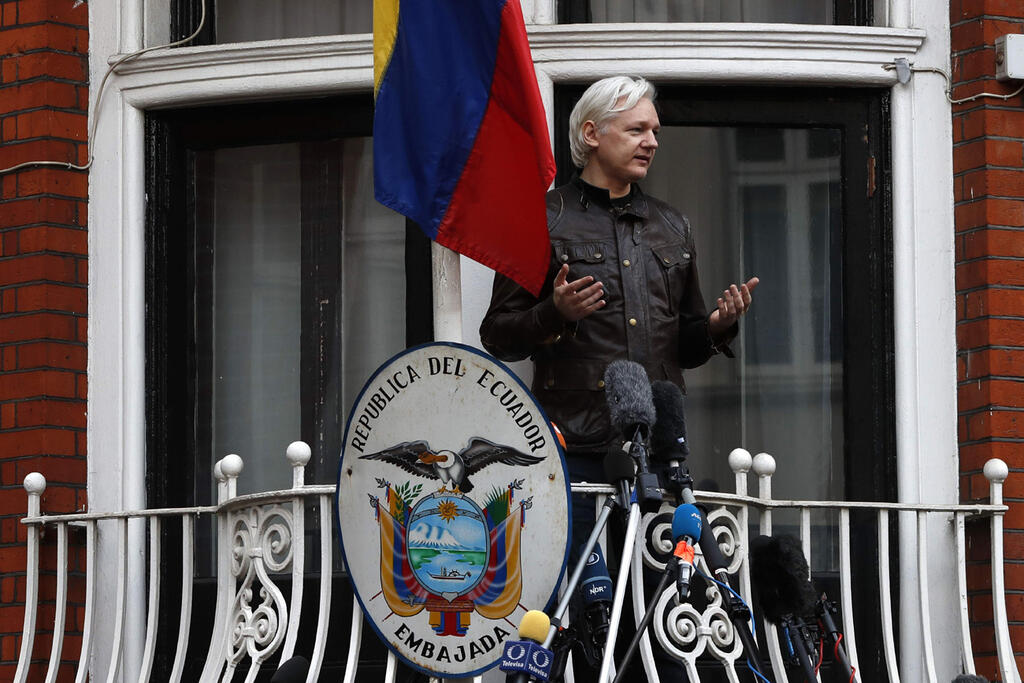WikiLeaks founder Julian Assange has agreed to plead guilty to violating the American Espionage Act. According to the agreement, which will allow him to be released from detention in the UK and return home to Australia, more than five years after his arrest in the UK .
Federal court documents revealed on Monday night indicate Assange has reached a plea deal with the US Department of Justice, which allows him to avoid incarceration in the US. Under the plea deal, Assange will admit to violating the Espionage Act, and prosecutors will seek a 62-month prison sentence, which will be commuted to the time he has already served in London while his extradition to the US was being discussed.
Julian Assange before the hearing
The plea deal still requires approval by a federal judge. The court in the Northern Mariana Islands, a US territory in the Pacific Ocean near Australia, has scheduled a hearing on the plea deal and sentencing for tomorrow. Prosecutors from the US Department of Justice have requested the court to conduct the entire process on the same day, given Assange's opposition to traveling to the US and the proximity of the Northern Mariana Islands to Australia, his home country.
If approved, this agreement would allow Assange to be released immediately. Following the revelation of the federal court documents, WikiLeaks said that its founder had been released from prison in the UK and was no longer in the country.
The plea deal between Assange and the US Department of Justice brings an end to a long saga during which the US demanded his extradition from the UK. Assange faced 18 criminal charges in the US, including violating the Espionage Act, making him one of the most notorious figures involved in the breach of classified information in US history.
Assange came into the spotlight at the end of 2010 when his leak site began publishing classified documents from the US military and State Department, revealing details about the wars in Afghanistan and Iraq, as well as pertinent details about American diplomacy on a global scale. The internal documents included testimonies of embarrassing failures by the forces, human rights violations, and quotes from closed-door meetings with politicians around the globe.
The publication of the documents caused significant embarrassment for the US and its allies. Often, the documents contained unflattering nicknames attributed to international leaders by American diplomats and statements that the US and other countries would have preferred to keep confidential, such as how Arab countries urged the West to attack Iran.
Ecuador granted Assange asylum in 2012 to prevent his extradition to Sweden on rape suspicion and his extradition to the US, where he was wanted for publishing hundreds of thousands of classified military documents. For a long time, he lived in the embassy in London and managed his affairs from there. In May 2018, Sweden closed the investigation against him, but the UK clarified that he would be arrested upon leaving the embassy.
Assange was arrested in 2019 by British police at the Ecuadorian embassy in London, where he had been granted political asylum for seven years. His arrest was facilitated after Ecuador revoked his diplomatic immunity, citing repeated violations of the terms of his stay at the embassy, and invited British police to apprehend him.
The path to Assange's arrest was largely paved by a change of government in Ecuador in 2017. Former President Rafael Correa, who offered Assange asylum in 2012, saw him as a hero, while his successor, Lenin Moreno, did not share Correa's sympathetic outlook. Moreno and his associates claimed that from his post at the embassy in London, Assange attempted to gather evidence of their corruption, installed listening devices, rifled through documents without permission and harassed the guards.





